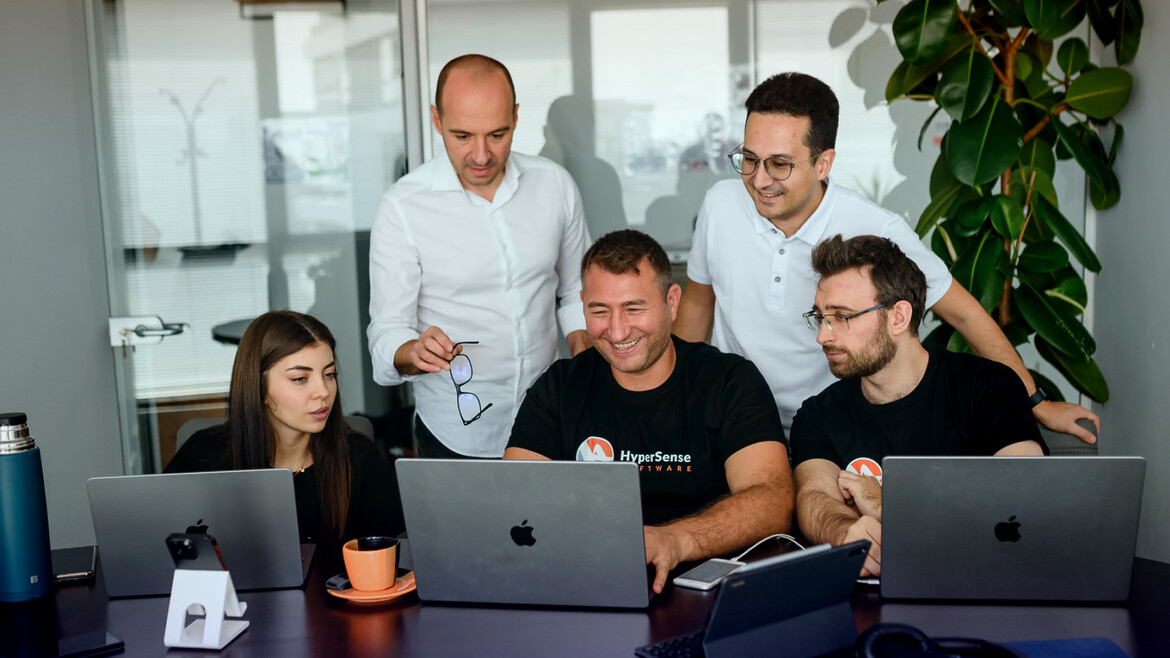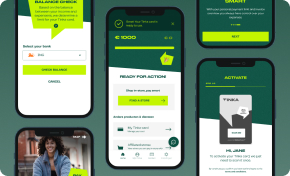The strength of a team doesn’t just come from technical skills or cutting-edge tools. It’s also about the social fabric that holds everything together. HyperSense knows this all too well. It’s not just about code; it’s about the human connection that turns a group of individuals into a powerhouse of innovation. Let’s peel back the layers of what makes development teams tick socially. Here’s to building bonds as strong as the software we craft.
Communication: The Bedrock of Team Collaboration
Imagine a team where ideas flow freely, questions find answers, and feedback moves as swiftly as a stream. This isn’t a nice-to-have; it’s the lifeblood of any thriving software development team.
Clear Roles, Clear Messages
Start with clarity in roles. Everyone should know who does what. This avoids crossed wires. Use tools that fit the job—Slack for quick chats, redmine/Jira for tracking, coda.io/Confluence for the bigger picture. Keep it open. A shared channel where everyone can drop their thoughts breaks down walls.
Feedback Loops and Active Listening
Next, create a feedback-rich environment. Encourage team members to speak up, to listen, and to act. It’s not just about airing views; it’s about digesting them. When someone talks, tune in—really tune in. Active listening can be a game-changer, turning a simple conversation into a springboard for innovation.
Daily Stand-Ups: Not Just Another Meeting
Embrace daily stand-ups. These aren’t just check-ins; they’re the pulse of the project. Who’s stuck? What’s flying? Keep it short, keep it sharp. Everyone leaves knowing the day’s beat.
It’s also important to note the broader industry perspective on collaboration. A report on cross-functional teamwork in software development emphasizes its critical role in efficiency and success. Surprisingly, while 83% of tech leaders acknowledge the importance of such collaboration, only a minority prioritize it in their company strategies. This highlights a gap in the industry and underscores the value of the collaborative practices we’ve discussed, reinforcing the need for a dedicated approach to teamwork in software development teams.
Remember, great communication isn’t about speaking louder; it’s about building bridges that carry every voice across the digital divide.
IT Consultancy for Strategic Advantage
Tailored IT Solutions to Drive Your Business Forward
Discover IT ConsultingInclusivity: Building a Unified Software Development Team
Inclusivity is not just a buzzword; it’s the cornerstone of a robust development team. It’s about embracing diversity in thoughts, backgrounds, and perspectives. Here’s how we do it:
Welcoming Ideas from Every Corner
In a room full of different people, you’ll find a mosaic of ideas that can solve problems in ways one mind alone never could. Encourage everyone to contribute, regardless of their title or tenure. When a junior dev’s idea gets the same attention as a senior’s, you’re on the right track.
Cultivating a Bias-Free Zone
Banish bias. Period. This means making decisions based on merit, not on preconceived notions. Use blind hiring practices when possible, judge code by its quality, and hold all discussions in a space where the best argument wins, not the loudest voice.
Accessibility: The Non-Negotiable
Make sure everyone has what they need to succeed. This goes beyond physical accommodations. Think about remote team members—does everyone have the tools and opportunities to engage equally? If not, it’s time for a change.
Training and Mentorship
Invest in training that enhances not only technical skills but also cultural competence. Pair up different minds for mentorship—this can spark growth and understanding across the board.
Building an inclusive team isn’t about checking a box. It’s about weaving a fabric so tight that every thread, no matter its color or texture, is integral to the overall strength of the tapestry.
Boost Engagement Through Tailored UX/UI Design
Designing Impactful Digital Experiences That Foster Connection and Increase Sales
Discover UI/UX DesignTrust and Transparency: The Glue That Binds a Team
Trust and transparency aren’t just corporate jargon—they’re the gears that keep the team machine running smoothly. Without them, things grind to a halt.
Open Doors and Open Minds
Keep the doors open—literally and figuratively. Leaders should be approachable, ready to discuss, and willing to share. When team members understand the ‘why’ behind decisions, they’re more likely to buy into the ‘what’ and the ‘how’.
Honesty as Policy
Make honesty the default setting. It’s simple. If there’s a hiccup in the project, say it. If there’s success, share it. Honesty fosters a culture where mistakes are stepping stones, not setbacks.
Privacy with a Purpose
Transparency doesn’t mean broadcasting everything. Respect privacy, but ensure everyone knows it’s okay to share struggles as well as successes. It’s about finding balance.
Building Trust Takes Time
Remember, trust isn’t instant coffee; you don’t get it just by adding water. It’s brewed over time, through consistent actions and open dialogue. Celebrate the small wins together. Acknowledge the rough patches. Stand united when it counts.
In a transparent team, trust is the silent symphony that orchestrates every interaction towards a shared goal.
Discover Our Development Teams
Boost Your Projects with Expert Software Development Teams
Get Your Development TeamWork-Life Balance: Sustaining Long-Term Productivity
A well-rested developer is a productive developer. Work-life balance isn’t about working less—it’s about working smart. Here’s how to maintain equilibrium:
Respect the Clock
Respect working hours. If your team is logging off, let them. Encourage breaks. Long hours don’t mean good work—often, just the opposite.
Flexible Scheduling
Embrace flexibility. Life isn’t 9-to-5 anymore. If your developer’s energy spikes at 11 PM, why not let them code when they’re at their best?
Vacations are Vital
Encourage time off. A developer who’s seen the world brings fresh perspectives back to the team. Plus, they’re recharged and ready to tackle challenges.
Tools for Time Management
Invest in tools that help manage workload efficiently. Time-tracking apps, project management software—these aren’t just tools, they’re lifelines.
Balance isn’t about tipping the scales towards life or work—it’s about ensuring neither side is weighed down. It’s about keeping the team humming with a rhythm that sustains productivity and personal happiness.
Furthermore, the shift to remote work, especially highlighted during the COVID-19 pandemic, has brought new dimensions to work-life balance in software development. A study exploring this transition among software engineers reveals important insights on how factors like supervisor support and individual workspace significantly impact this balance. This underscores the importance of mindful organizational strategies in fostering a healthy work-life balance in an increasingly virtual work environment.
Recognition and Growth: Catalysts for Team Motivation
Recognition and growth are the fuel that keeps a development team moving forward. They’re the signs on the road that say, “Yes, you’re heading in the right direction.”
Celebrate the Milestones
Take time to celebrate. Whether it’s a successful deployment or a bug squash, recognition can turn a routine task into a triumph. It tells your team, “We see you, we appreciate you.”
Feedback: The Growth Multiplier
Provide feedback—it’s the breakfast of champions. Positive feedback reinforces good practices, while constructive criticism, delivered empathetically, can pivot someone towards better performance.
Career Paths, Not Dead Ends
Show your team that there’s a path forward. Encourage skill development, provide learning resources, and support career progression. When a team member grows, the whole team levels up.
Peer Recognition: The Unsung Hero
Foster a culture of peer recognition. A ‘thank you’ from a teammate can sometimes mean more than a formal award. It builds bonds stronger than any team-building exercise.
Motivation is not a one-size-fits-all; it’s a tailored suit that fits the unique shape of each developer. When you get it right, the results can be extraordinary.
Redefine Your Business with Our R&D Services
Innovation Infused into Every Product Element Through R&D-Backed Development
Learn About R&D ServicesCultivating Success: The Sum of Our Parts
In conclusion, the social dimensions of a software development team are more than just nice-to-haves—they’re essential to success. Communication sets the foundation for collaboration, inclusivity enriches our pool of ideas, trust and transparency bind us, work-life balance sustains us, and recognition, alongside growth, propels us forward.
At HyperSense, we understand that our software is only as strong as the team behind it. That’s why we’re committed to nurturing these social aspects, ensuring our teams don’t just function, they flourish. Because when we support each other in every aspect, the software we build doesn’t just meet the mark, it sets it.
As we continue to navigate the complexities of software development, let’s remember that our most valuable assets are the individuals who come together to turn ideas into digital reality. Let’s commit to being a team where every member feels valued, heard, and poised for growth.
Let’s not just do great work together—let’s create a great place to work, together.
Interested in elevating your software development team’s dynamics? At HyperSense, we’re dedicated to fostering collaborative, innovative, and balanced work environments. Reach out to us to discover how we can help transform your team’s social and collaborative aspects into a driving force for success. Contact us today to start a conversation about unlocking your team’s full potential.










